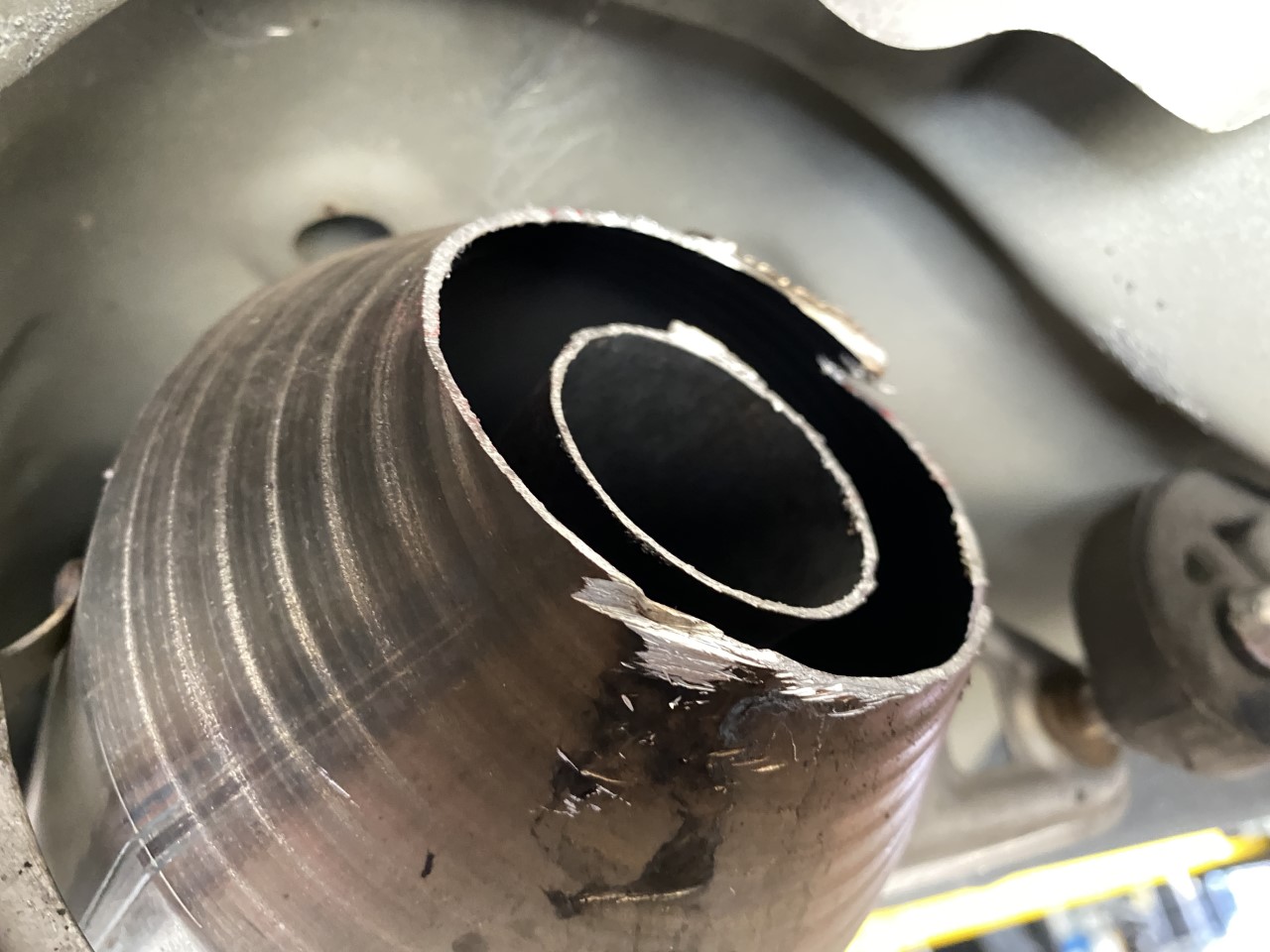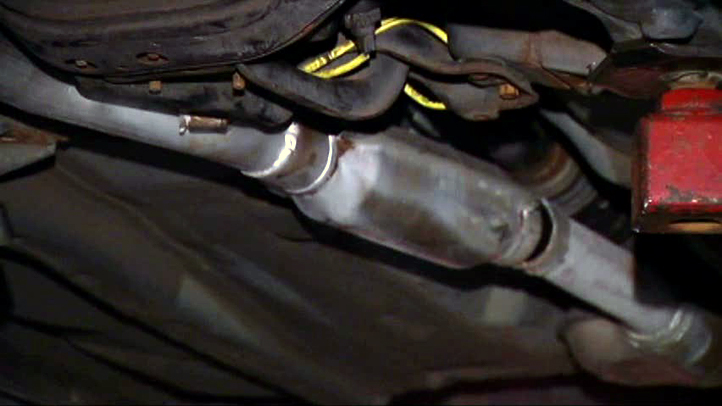Catalytic converter theft isn’t slowing down.
In fact, the I-Team has learned it’s getting much worse, leaving some car owners stuck with a car they can’t drive for months. And, lawmakers are scrambling to try and fix the problem.
Bennett Kolasinsky has a story that’s all too familiar these days.
“A few weeks ago I was driving my kid to school, went to start it up, and instead of the usual Prius golf cart noise, it sounded like a motorcycle taking off down the street,” said Kolasinsky.
Get top local stories in Southern California delivered to you every morning. >Sign up for NBC LA's News Headlines newsletter.
Thieves had swiped the catalytic converter from underneath his Prius, so they could sell the part, which is made of pricey metals.
But Kolasinsky has an even bigger problem. He was about to sell his car, and now he can’t. Instead, he’s on a months-long waitlist for a new catalytic converter. Toyota told the I-Team there’s so much demand for them, the supply chain can’t keep up.
“Yeah, I’m kind of stuck with the car until it’s fixed,” said Kolasinsky.
He’s not alone. According to the National Insurance Crime Bureau, catalytic converter thefts jumped 1215% between 2019 and 2021. State Farm, the state’s largest auto insurer, says last year it paid out $62 million in claims for converter thefts. And the company says this year is looking worse.
Mechanic Ariel Flores says the Eagle Rock body shop where he works sometimes sees 40 cars a month with stolen converters. He thinks thieves are pocketing up to $1,000 per converter.
“So you do two of those, three of those a night, I don’t know anyone else who does $3,000 a day, tax free,” said Flores.
The industry is scrambling to fix the problem.
“I think now the crooks have realized it’s easy money. It’s more profitable than dealing drugs. And there’s a lot less risk involved,” said Joe Boche with the International Association of Auto Theft Investigators.
Boche has ideas to help curb the crime, like: marking catalytic converters with the VIN or another number that law enforcement can use to track the part to the car; requiring buyers of catalytic converters to collect a government ID from sellers; requiring buyers to keep transparent records, which law enforcement can access; and jail time and fines for any buyer or seller who doesn’t comply.
“Once they realize they might be the subject to a criminal prosecution or civil fines and penalties, I suspect they’ll change their business practices. And that’ll probably create the biggest chilling effect on this problem we can have,” said Boche.
There’s now proposed legislation at both the federal and state level that contains some of Boche’s suggestions. But until something passes, people like Kolasinsky will keep taking the hit, while thieves continue to pocket the money.
Here are some tips to keep your car safe:
- Park in a garage whenever you can.
- If you park on the street, make sure it’s in a well lit area.
- Consider installing a catalytic converter anti-theft device, like a cage. Some car owners are learning thieves can still saw through that to get to the converter, but it can be a deterrent.



